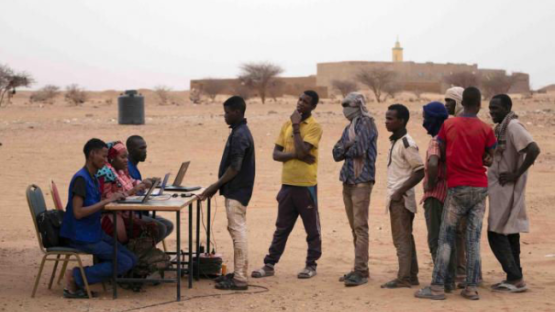
Francesco Bellina
If you are persecuted at home, you have the right to seek protection in another country.

Francesco Bellina
There are 29.4 million refugees and asylum seekers across the globe today. These are people who have fled their countries due to conflict, violence or persecution seeking protection in safer environments.
People have protected those in need fleeing from dire situations since antiquity. However, over recent years, European countries have become increasingly hostile towards refugees - treating them as criminals instead of people in need.
In 2017, German authorities passed a law allowing immigration officials to seize data from the devices of asylum seekers to determine their identities and nationalities. In the first 6 months of enforcement 8,000 phones were searched. Similar legislation has been passed in Austria, Denmark and Belgium, and has been operating in the UK and Norway for years.
Smartphones have helped thousands of migrants to travel safely to Europe, helping them to translate and navigate, find safe and open routes and contact their family. However, European governments have weaponised these devices, turning the smartphones into intrusive and unjustified legitimacy tests for seeking asylum.
What is more the assumption that obtaining data from digital devices leads to reliable evidence is flawed, even more in the case of asylum seekers: in the course of a long and dangerous trip, they may have swapped phones, they may have accessed certain sites or liked certain social media activity for a whole variety of reasons, and they may have been in touch with people whose name spelling appears on watchlists for a whole variety of reasons.
Such unjustifiable intrusions to their privacy prey upon refugees and asylum seekers in extremely vulnerable positions, who have little option but to comply, stripping them of their dignity.
Privacy protections provide much needed limitations on these powers, which turn refugees and asylum seekers from rights holders under the refugee convention into suspects, with the burden to prove their legitimacy.
(1) Everyone has the right to seek and to enjoy in other countries asylum from persecution. (2) This right may not be invoked in the case of prosecutions genuinely arising from non-political crimes or from acts contrary to the purposes and principles of the United Nations. Article 14, Right to asylum